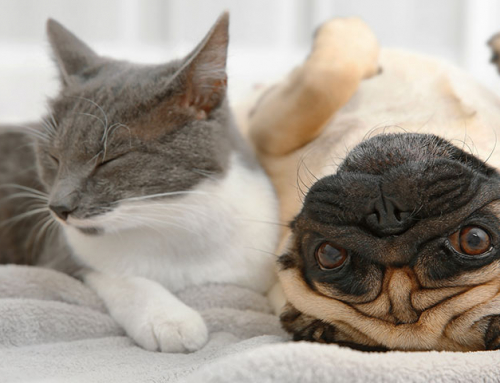Years ago, before I had honed my charming bedside manner, I entered a well pet exam and teased the client that she had a “max pin” instead of a “min pin”. That’s short for miniature pinscher for those not used to vet speak. I don’t think the client heard a word I said after that.
Her doggy was as wide as it was tall, and I was simply trying to approach the subject of weight loss to improve the pet’s quality of life. Instead I offended the owner and was later told by the office staff that the client never wanted to see me again! Oops. Since then I have stuck with euphemisms such as “pudgy” or “thick” or “stocky”.
More recently, one of my good clients with a healthy dog who was going to daycare needed records sent to show that vaccines were current to be allowed into the facility. If a client wants records I typically have my staff email the entire chart rather than just the vaccine page. Even though this handsome pooch had gained several pounds this last year, the owner was a touch offended when I had commented that that the dog should lose 5-8 lbs. He was a cattle dog and extremely active. I didn’t want him to suffer from orthopedic issues (i.e. Cruciate ligament injury) carrying around a few pounds. As you might expect, I got a phone call. Calling a pet fat is much like telling a fella his wife is fat. People get offended!
If you are getting my newsletter you likely have a diabetic pet. It’s no secret that obesity causes insulin resistance. You should know if your pet has appropriate body condition. Veterinarians have a shorthand way to say if a pet is too thin, too chubby or just right. It’s called “body condition scoring” (BCS). Much as we write a pet’s temperature, weight, and heart rate in a physical examination medical notes, we write a dog or cat’s BCS in the notes. This matters especially in multi-doctor practices because we typically base doses for medications on lean body mass. If one doctor examines your pet but another vet prescribes a medication for your pet shortly thereafter, the 2nd doctor can more accurately prescribe a dose for whatever medication.
You can easily find charts for BCS on the Internet by typing body condition scoring into an Internet search on your computer. A BCS of 4 or 5 is ideal. BCS of 4/9 means that 15-19% of the pet’s weight comes from fat. A BCS of 5/9 means 20-24% of the pet’s weight is from fat. This goes up all the way to a score of 9 out of 9. A BCS of 9/9 means that at least 40% of a pet’s body mass is from fat.
If we are trying to determine just how much a pet should weigh, one trick is to look back in the medical chart to see how much the pet weighed at 1 year of age. This of course is assuming the pet wasn’t already pudgy by then. If that isn’t available, we can utilize the best guess approach, knowing that a pound of body fat is about a tub of margarine (how is that for a frightening visual!). Or for science nerds, you can utilize the free “healthy weight” app for smart phones.
Now, if you realize that your sweetie is just a bit pudgy (say a BCS of 6/9) you might simply cut back on the food by 10%. That’s not rocket science. Increasing the exercise, measuring (or weighing) the food and backing off on treats and you’ll be there before you know it.
If your sweetie is packing around a BCS of 7/9 (equating to 30-34% body fat), you should probably consult your veterinarian about a therapeutic weight loss diet in addition to decreasing the amount fed. We choose therapeutic weight loss diets to prevent nutritional deficiencies in vitamins and minerals when cutting back on the calories and fat content. Therapeutic weight loss diets typically have higher protein content for satiation and to help maintain muscle mass. They also typically are high in fiber to dilute out the calories and provide satiation. Speak with your family veterinarian to help choose the appropriate diet for your darling pet.
NOTE: Consult your veterinarian to confirm that my recommendations are applicable for the health needs of your pet.







Leave A Comment